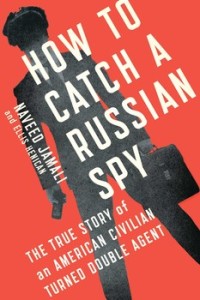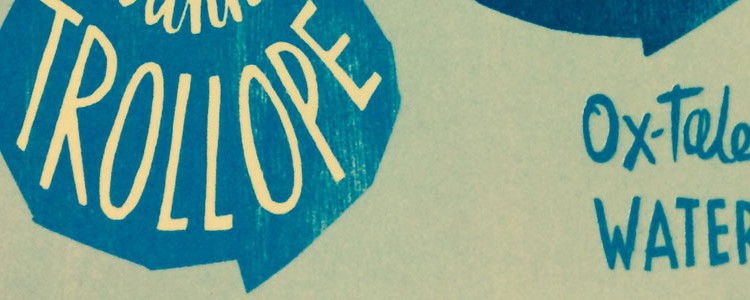
My review of John le Carre’s latest novel, A Delicate Truth was published in the Hindu Literary Supplement. (Online on 1 June 2013 and in print on 2 June 2013) Here is the link to it: www.thehindu.com/books/books-reviews/psychological-not-physical/article4772146.ece . The longer version of the review is reproduced below:
A Delicate Truth is a typical John le Carre spy-thriller, more psychological, less physical action. Yet the plot moves swiftly and is gripping to read. A seasoned but low-flying British foreign office man, “Paul Anderson” is sent off on an undercover assignment to Gibralter by Minister Quinn. Operation Wildlife — a secret operation and a public-private enterprise to kidnap a high-value terrorist from the Mediterranean Sea. As Elliot, Paul’s handler puts it politely, “He is the most unprincipled fucking merchant of death on the face of this earth bar none, but also the chosen intimate of the worst dregs of international society who is preoccupied with selling Manpad, man-portable air-defence system.” Jeb and his beach team observe a bag is first deposited at the front steps of the house under surveillance and then collected by a person wearing an Arab dress –a suicide bomber? Immediately they act. Predictably as with any conflict situation there is collateral damage.
Three years later Toby Bell, Private Secretary to Minister Quinn begins to unravel the mystery behind this operation. It has been bothering him considerably since despite being part of the minister’s official team at the time he had absolutely no knowledge of some projects his master was involved with. He can only connect the dots after having tapped a secret conversation in the minister’s official chamber, he realizes the wide and intricate nexus defence contractors and mercenaries have cast globally, with Fergus Quinn being a cog in in too. (A man of whose appearances one should not be fooled. “He’s a thug, he beats the working class drum, but he’s also ex-catholic, ex-Communist and New Labour – or what’s left of it now that its champion has moved onto richer pastures…He hates ideology and thinks he has invented pragmatism. He hates the Tories, although half the time he is to the right of them.” He is preoccupied with G-WOT or the global war on terror. ) A name heard often is of Jay Crispin and his Ethical Outcomes group, a fly-by-night company of defence contractors, “a caucus of wealthy American conservative evangelicals convinced that the Central Intelligence Agency is overrun with red-toothed Islamic sympathizers and liberal faggots”, a view that Finn is disposed to share. They are a private corporation that specializes in precious commodity— “high-grade information” more commonly known as secret intelligence, collected and disseminated in the private sphere only. “Unadulterated. Untouched by government hands.” Crispin is considered to be Quinn’s Svengali. According to Jeb, some years later when analyzing Operation Wildlife, the Ethical Outcomes team had lead Quinn up the garden path. “It was a deal gone bad. Nobody wants to admit that they handed over a couple of million dollars in a suitcase for a load of old cobblers, well do they?” Yet it is deemed as a successful operation. Paul gets knighted in recognition and a diplomatic posting overseas. Save for the loss of a couple of innocent lives, life carries on. Crispin reappears in a new and far more insidious avatar, linked to Rosethorne Protection Services, worth about 3 billion US (growing rapidly) with full time employees being six hundred. Offices spread across the world, specializing in “everything from personal protection to home security to counter-insurgency to who’s spying on your firm to who’s screwing your wife.”
A Delicate Truth is set during the Bush-Blair years at a time when the number of conflicts around the world increased and post 9/11 these intensified. Flushing out “the jihadi” was of paramount importance. In conflict studies, it is well documented that post-conflict reconstruction of a fragile society is a very slow and expensive process, requiring the skills and resources from around the world. It is lucrative business. But post-Cold War espionage genre floundered a bit since it was no longer a polarised world, easy to write about. It had taken off immediately after the World Wars, with writers like Ian Fleming, Len Deighton, Graham Greene, and John le Carre dominating it. (Even an experienced writer and an ex-spy John le Carre took a while to find his bearing in the new world order.) But contemporary warfare has shown a sharp escalation after the collapse since the early 1990s, giving a context and probably an appetite for this kind of fiction. Interestingly it has been the burst of espionage fiction in the children and young adult literature that has come to the fore. For instance, Anthony Read’s The Baker Street Boys (based upon his very popular 1980s TV series, but the novels began to appear in 2005 onwards); Andrew Lane Young Sherlock Holmes; Anthony Horowitz’s Alex Rider; Robert Muchamore’s Cherub novels; Charlie Higson’s hugely successful Young Bond; Chris Bradford’s Young Samurai series and for younger readers, Jill Marshall’s Jane Blonder and Andrew Cope’s Spy Dog. Having said that, it is also anti-war literature like debut author and ex-Iraqi war veteran Kevin Power’s The Yellow Birds and A Delicate Truth (given le Carre’s vocal condemnation of the Iraq war) that are creating a healthy public discourse about war and conflict albeit via literature, circumventing doctored press releases.
Jaya Bhattacharji Rose is an international publishing consultant and columnist.
1 June 2013
John le Carre A Delicate Truth Penguin Books, New Delhi, 2013. Pb. Pp. 312 Rs. 210
 Naveed Jamali’s book How to Catch a Russian Spy documents his life as a double agent. He worked with the FBI but led the Russians to believe that he was working for them. For him, especially after 9/11, as a first-generation American, born of immigrant parents Naveed was keen to serve his country. Ideally he wanted to use his knowledge about computers in Naval intelligence but he failed to pass the test. So when an opportunity presented itself or rather he made it happen, it was the nearest to a dream come true — of being a spy. Having grown up reading spy novels, watching TV shows about undercover work and the James Bond series he was very enthusiastic about spying. Plus, he had the good fortune of his parents company — Books & Research — being strategically significant. It had for more than two decades been visited frequently by American and Russian agents in search of difficult-to-find books and articles.
Naveed Jamali’s book How to Catch a Russian Spy documents his life as a double agent. He worked with the FBI but led the Russians to believe that he was working for them. For him, especially after 9/11, as a first-generation American, born of immigrant parents Naveed was keen to serve his country. Ideally he wanted to use his knowledge about computers in Naval intelligence but he failed to pass the test. So when an opportunity presented itself or rather he made it happen, it was the nearest to a dream come true — of being a spy. Having grown up reading spy novels, watching TV shows about undercover work and the James Bond series he was very enthusiastic about spying. Plus, he had the good fortune of his parents company — Books & Research — being strategically significant. It had for more than two decades been visited frequently by American and Russian agents in search of difficult-to-find books and articles.




